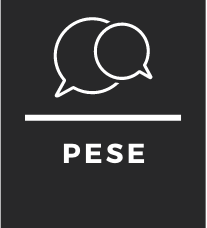Background
The PESE project aims to research the labour market in partner countries and establish the type of English skills employers currently require from their employees. This then enables the development of relevant English material to boost employability among the unemployed.
The expectation is that on completion of the project, members of the direct target group (unemployed learners) involved in piloting and those reached through a widespread dissemination strategy will increase their professional English skills and thus boost their employability.
The project will eventually produce an e-course which will obviously benefit those who live in rural areas without access to language schools or face-to-face classes.
The project so far
The project kicked off in November 2020 and work on the IO1 – Handbook Development, began in earnest in January 2021 and was completed in March. The Framework for a curriculum began in April and was completed August 2021. The partners set to work on preparing lesson modules on PowerPoint slides.
The next step of the project was the conversion of the course into SCORM, which will create an engaging e-course with 10 Modules addressing different aspects of the use f English at the workplace.
A simple analogy for SCORM
Whenever you have to plug in a device to your computer, you usually use a USB port, right? That’s a standardised specification that all technical hardware makers abide by, so all of your products work with each other easily. The USB or Universal Serial Bus is a standard that prevents every device having its own proprietary plug. This helps companies to build products that can exist in an ecosystem. The consumer has more choice too (just don’t mention Apple’s Thunderbolt). It’s the same principle for eLearning.
Sharable Content Object or SCO: This describes the elements of the SCORM package that can be reused across multiple tools and platforms. Once the various elements of the package are SCORM compliant, the content should be understood by all compatible learning platforms and tools. They are the ‘assets’ used in the course. In practical terms the conversion of SCORM for the PESE project means a lot of painstaking work, as hundreds of PowerPoint slides are scrutinised and reformatted.
Why this e-course will be beneficial for learners.
Learning business English will help you to improve your existing English skills as well as build up new knowledge. You will study vocabulary and expressions specific for your branch, you will learn how to write business correspondence and do other practical work-related tasks and, at the same time, you will have a chance to polish on your general English including grammar and pronunciation. In business English sessions you will frequently work with texts and articles from real-life newspapers and magazines (so-called authentic materials). In other words, you will have plenty of exposure to global news and trends in business. We are living in a world of constantly growing levels of globalisation, interconnectivity and intercommunication. There are business relations between companies from all over the world which makes the need to use a common language in communication rather obvious. While studying business English you will learn how international companies collaborate with one another, how they do business and build professional relationships.
Often, a good level of business English can help you get the job which you wouldn’t land without the knowledge of this global language in business context. Nowadays it’s rather indispensable to be able to express yourself confidently on a variety of topics in a business environment if your intention is to have an interesting and well-paid position in a multinational.
Being able to use specialised vocabulary and phrases confidently and fluently will make you sound like a real expert and you will be treated more seriously in business. You might be a great specialist and get your point across successfully in your mother tongue but if you aren’t able to do the same in English at international meetings you won’t be perceived in the same way. As a result, in the eyes of people who you will be dealing with, your value as a professional may decrease a great deal in such circumstances. In other words, in order to avoid this type of situation you have no choice but to get down to working on your business English!
If you would like to learn more about our projects, please stay tuned for our next updates on our website here and on our Facebook page.
